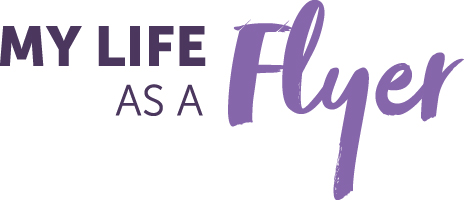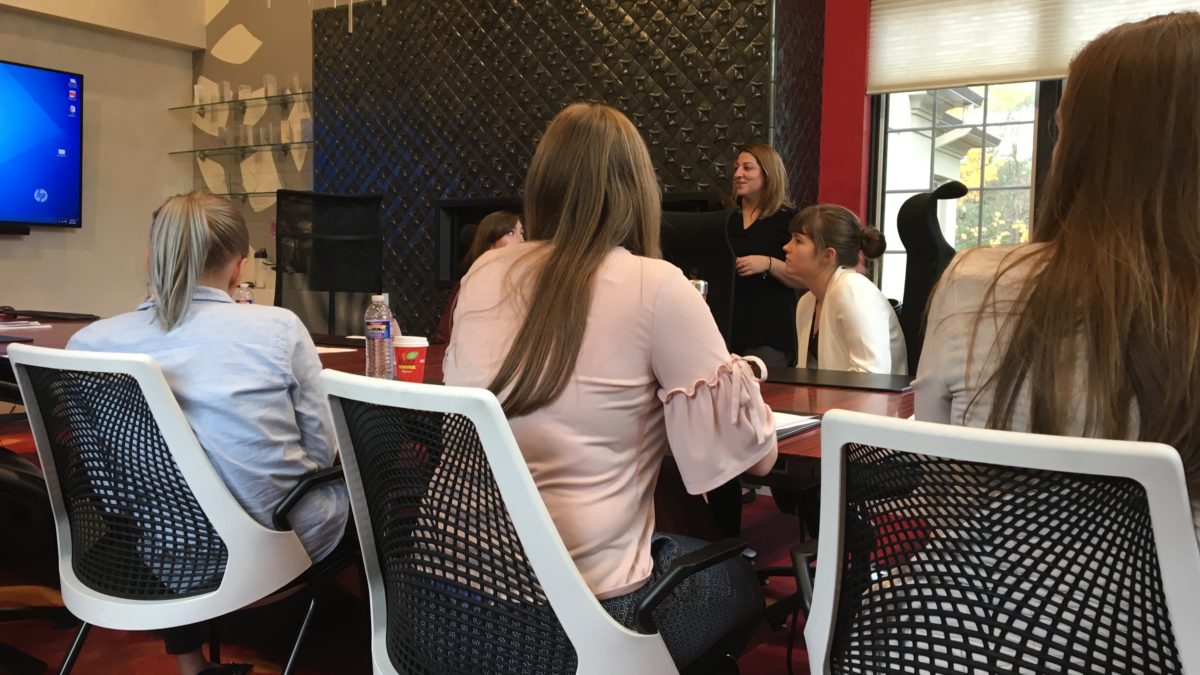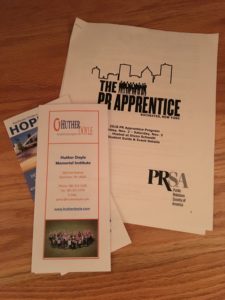In my time at Naz, I’ve learned that Rochester is home to a variety of active and friendly professional communities. While I can only speak for the communication field from experience, there are countless organizations and professionals, particularly young ones because we have so many colleges in a small area, who are more than willing to share their time and expertise with those who ask.
One of the aforementioned organizations with a heavy presence in the community is Rochester’s Chapter of the PRSA (Public Relations Society of America). PRSA Rochester organizes a host of events throughout the year, including presentations, panel discussions, and countless other networking and educational events. I’ve been to several of their events, some of which have even been held on campus, and it has been a great way to connect with local professions and peers and to learn more about topics within the communications field that interest me.
I recently had the opportunity to participate in the PRSA PR Apprentice Program. This two day, “boot camp” style competition brings communication students from many of the local colleges together at Dixon Schwabl, an award-winning ad agency in the area. Young professionals are also on hand to mentor and guide the student groups as they develop a PR campaign for a community partner. We were broken in groups of four to five and had, between Friday night and Saturday, about 10 hours to receive our assignment, conceptualize a campaign, and present it to the partners. This year, our community partners/clients were Huther Doyle (a local substance abuse recovery center) and the District Attorney’s office. In the process of implementing HOPE, a new program, based off of a very successful one in Long Island that takes those charged with certain misdemeanor drug offenses to treatment, rather than to court, our clients were looking for an internal campaign to inform police officers, public defenders, and other treatment provides of the program.
After our community partners provided us with a brief presentation on what they wanted from us, we were able to meet our groups and get to work. My group included myself, a student from SUNY Brockport and two students from SUNY Geneseo. After a quick round of introductions and a buffet style dinner, we started to throw around ideas. Nazareth has the most amazing communications professors, but every instructor brings their own unique experiences to the classroom, so it was very interesting to hear about what my group members were learning in their courses and see how that knowledge influenced their communication styles. Luckily, we didn’t encounter any major conflicts, but it did take us a little time to come up with a coherent plan, for no other reason than we had an excess of great ideas and potential directions. With the help of one of the professional mentors we were able to close off the night knowing who we wanted to reach with our campaign, what message we wanted to convey to that audience, and what methods we wanted to use.
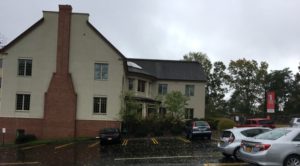
Saturday, after a quick breakfast, it was time to lay out our plan in presentation form. We spent the morning further developing our campaign goals and identifying tangible steps by which we could achieve them. These included creating educational programs and guides for police officers, public defenders, judges, and treatment centers, as well as bringing representatives from Long Island to Rochester to help instill confidence in the program. After several hours of writing and a few practice presentations, it was time to share our plan with our community partners.
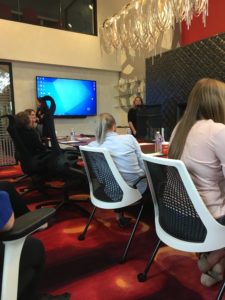
Compared to the many hours of work leading up to it, the ten minute presentation flew. We were able to watch the other groups present as well and, even though we had plenty of those “darn we should have thought of that” moments, it was fun overall to see what everyone came up with. In the end they did pick a winning campaign, but the community partners were so impressed with all of the presentations that they plan to use elements of all of them. I was especially excited that one of my main contributions, a “pocket card” that police officers can carry with them in their ticket books to remind them of the HOPE program, was called out by the District Attorney representative as a great idea that she plans to use. Although it was tiring and time consuming, I was so glad I decided to participate in this program as it gave me the chance to work through the types of real world tasks and problems that I’ll face in my career.
While the idea of networking or finding an internship may seem light years away when you enter college as a freshman, it’s truly invaluable to look for opportunities to test what you’ve learned in the classroom out in the “real world” – and the sooner the better. The best part is that it’s not difficult to do at Naz, you just have to be willing to ask! Your professors and advisors are often the best resources as many of them are very involved in their fields outside the classroom. The Center for Life’s Work is also very knowledgeable and can point you in the direction of internship, job, and research opportunities that may be of interest to you. As a high school senior, I didn’t realize how much of my education would take place outside of the classroom, so now, as a college senior, I’m extremely glad that I chose a school with such a strong, welcoming, and generous professional community at and around it!
